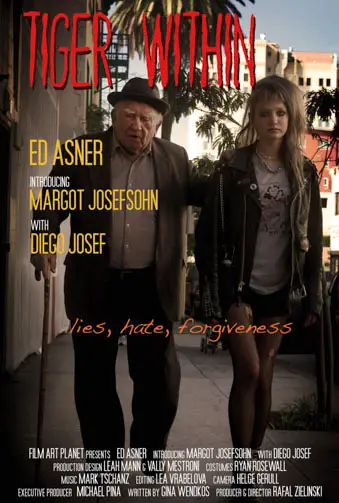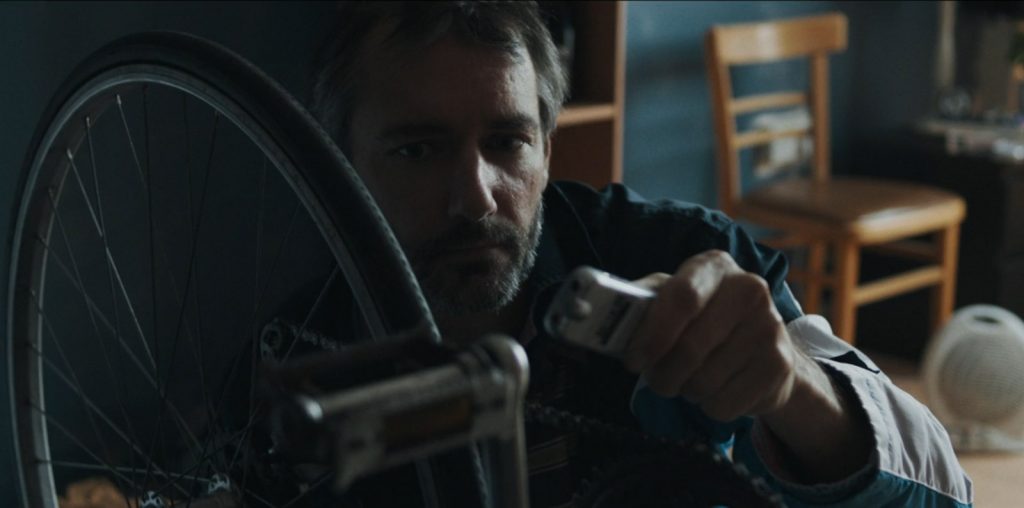
More often than not, Asner’s effectively restrained performance as the self-effacing Holocaust survivor and widower strengthens the dialogue by not overplaying it. Asner also exudes expressions that are of importance, and he carries himself with confidence. Margot Josefsohn inherits the verbal intensity to outright exhibit Casey’s ebullitions of anger, sadness, and rebellion. However, Josefsohn is left without the latent character depth that is desperately needed because, without it, her reactions are annoyingly, albeit acceptably, inflated, considering how well Asner plays his role.
Tiger Within underlines a fractured relationship between Casey and her mother that proves to be the most interestingly complex relationship of the bunch. Whilst Samuel and Casey’s friendship is agreeable, it unfolds briskly, and some lines of dialogue are delivered halfheartedly. And a later teen romance between Casey and Seth (Luke Eisner), while tolerably mawkish, hinges on awkward dialogue and convenient storytelling. Furthermore, Casey’s father has completely neglected her, mainly because of his new wife, who denounces Casey as a no-good delinquent, resulting in melodramatic scenes that fail to add more insight to her relationship with her father.

“From child neglect to taught benightedness to self-loathing, the film covers it all…“
It isn’t hard to believe that Casey has developed an ignorant mentality fostered by an unpleasant upbringing. Fortunately, Samuel’s wife understood and advocated for the concept of forgiveness to the point of even teaching Samuel how to forgive, thus explaining why Samuel feels compelled to help Casey. Over the course of the movie, Samuel’s motivations are immensely lucid and palpably felt.
The storytelling of Tiger Within is condensed into an inspirational tale of the human experience. From child neglect to taught benightedness to self-loathing, the film covers it all, but without the subtlety. While the accessibility and saccharinity may have been the point of the movie in order for it to appeal to a broader audience, it still lacks emotional depth and an earned sense of urgency. Nonetheless, under the control of Gina Wendkos’ tenderhearted screenplay and Rafal Zielinski’s mellow direction, the messages of forgiveness, fortitude, and healing are splendidly universal.

"…the messages of forgiveness, fortitude, and healing are splendidly universal."


